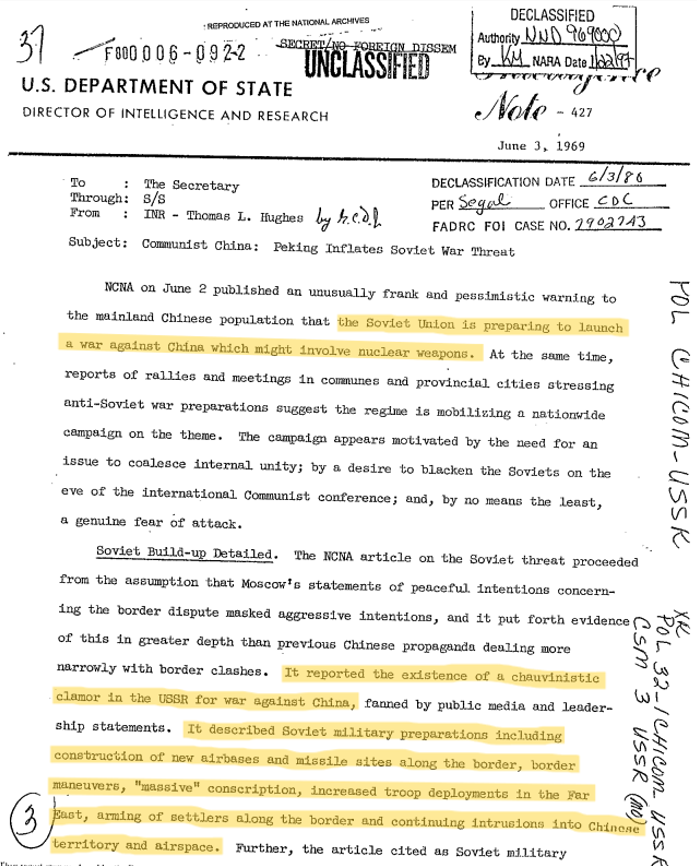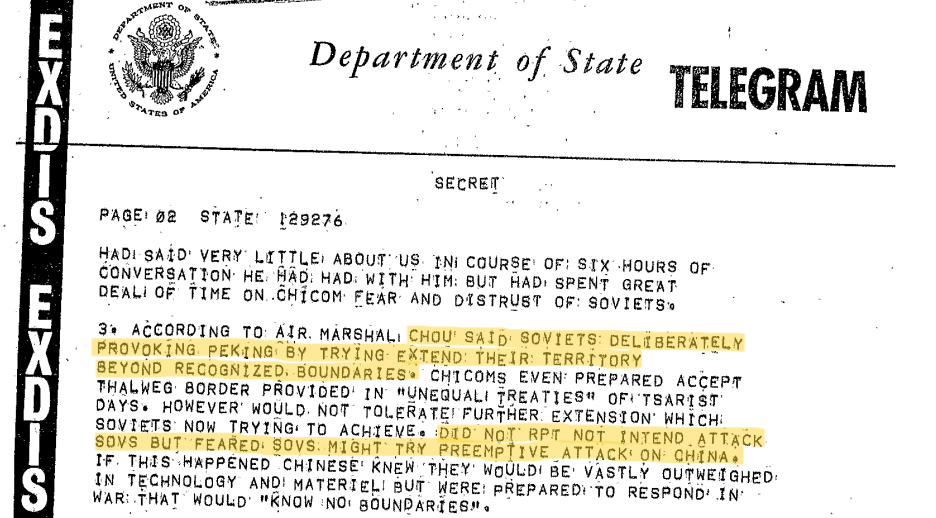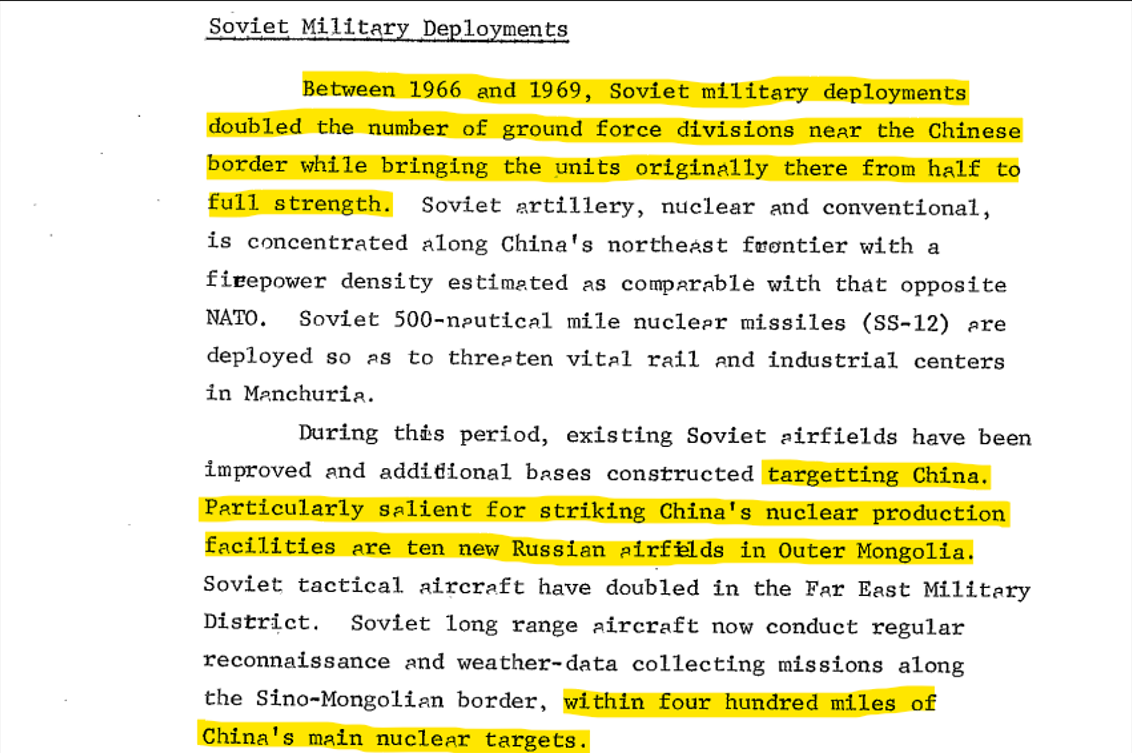Richard Nixon’s Visit to China: The Turning Point in Sino-American Diplomacy that Forever Reshaped the Geopolitical Landscape of the World
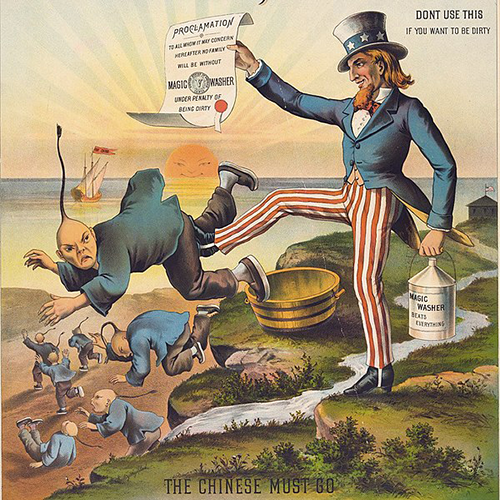
"“Uncle Sam kicks out the Chinaman” is an 1886 advertisement referring both to the 1882 Chinese Exclusion Act and to the “George Dee Magic Washer,” which the machine’s manufacturers hoped would displace Chinese laundry operators." Shober & Carqueville Lith Co.
Anti-Chinese Sentiment in the US
Throughout the mid-1800s, racism towards Chinese immigrants was rampant throughout America. American media outlets dispersed this common front, and the 1882 Chinese Exclusion Act furthered this anti-Chinese sentiment. Racist assaults and violent expellings took place in attempt to drive out Chinese-Americans from America. Chinese immigration was made illegal in 1902.
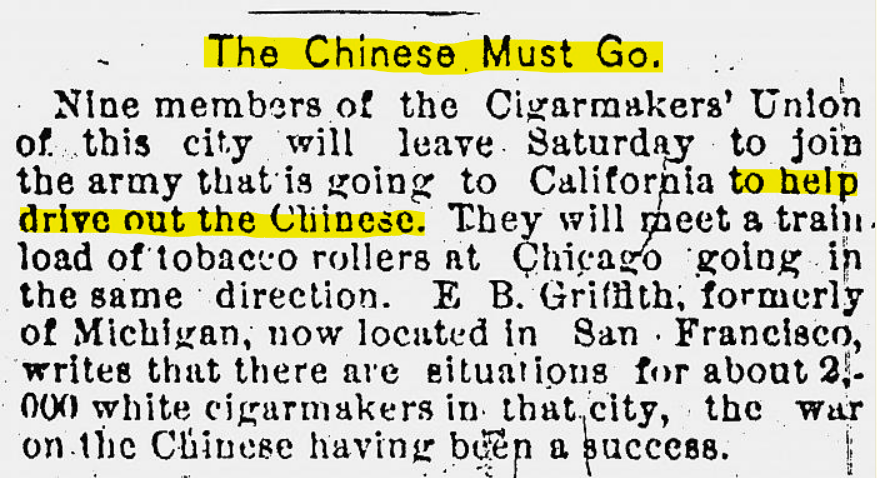
"Chinese must Go", 1885, Grand Rapids Evening Leader, Page 4
"California must be all American or all Chinese. We are resolved that it shall be American, and are prepared to make it so.”
-John Bigler, California Governor, 1854

"The Chinese Invasion! They are Coming, 900,000 Strong." The San Francisco Examiner San Francisco, California 27 Aug 1873, Wed, Page 3
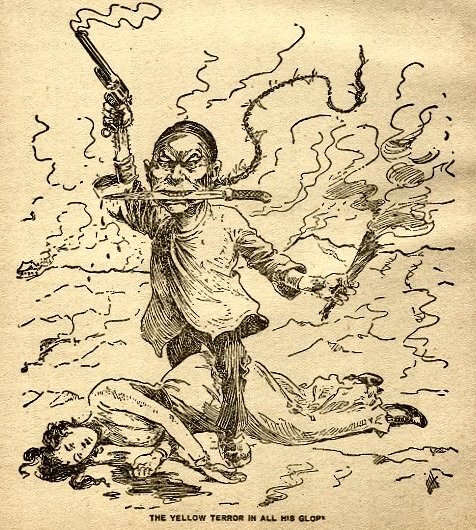
"The Yellow Terror in All His Glory", 1899 Artist Unknown
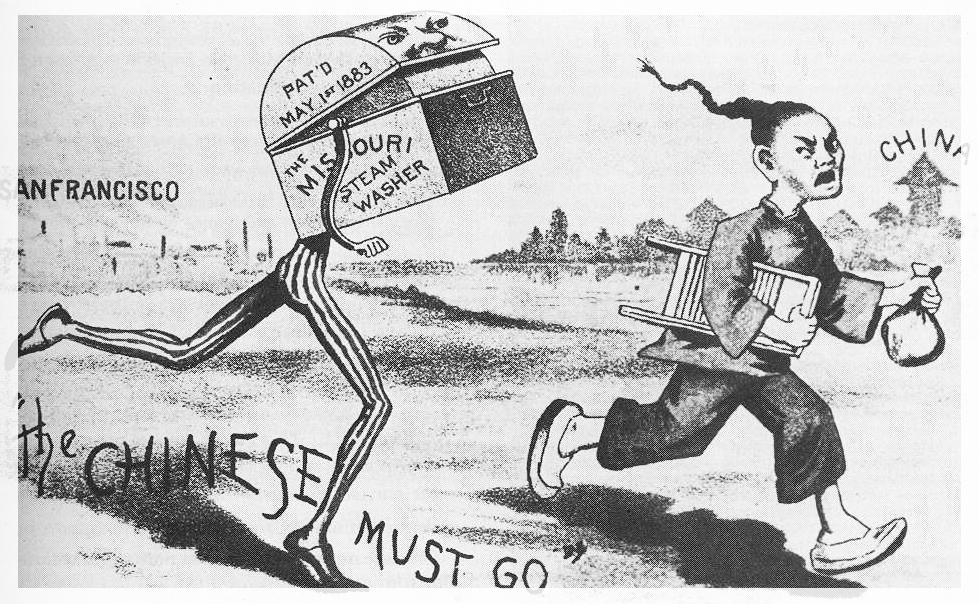
"The Chinese must Go", 1871, Thomas Nast
"Very early on in the history of this country, Chinese Americans were seen as a group of people we wanted to keep out."
-Grace Kao, Sociology professor at Yale University
The 1950s was a whirlwind of Chinese hate, with Senator Joseph McCarthy pioneering the false accusations of Chinese communist infiltration. This created intense fear and paranoia of Communist Chinese in the United States.
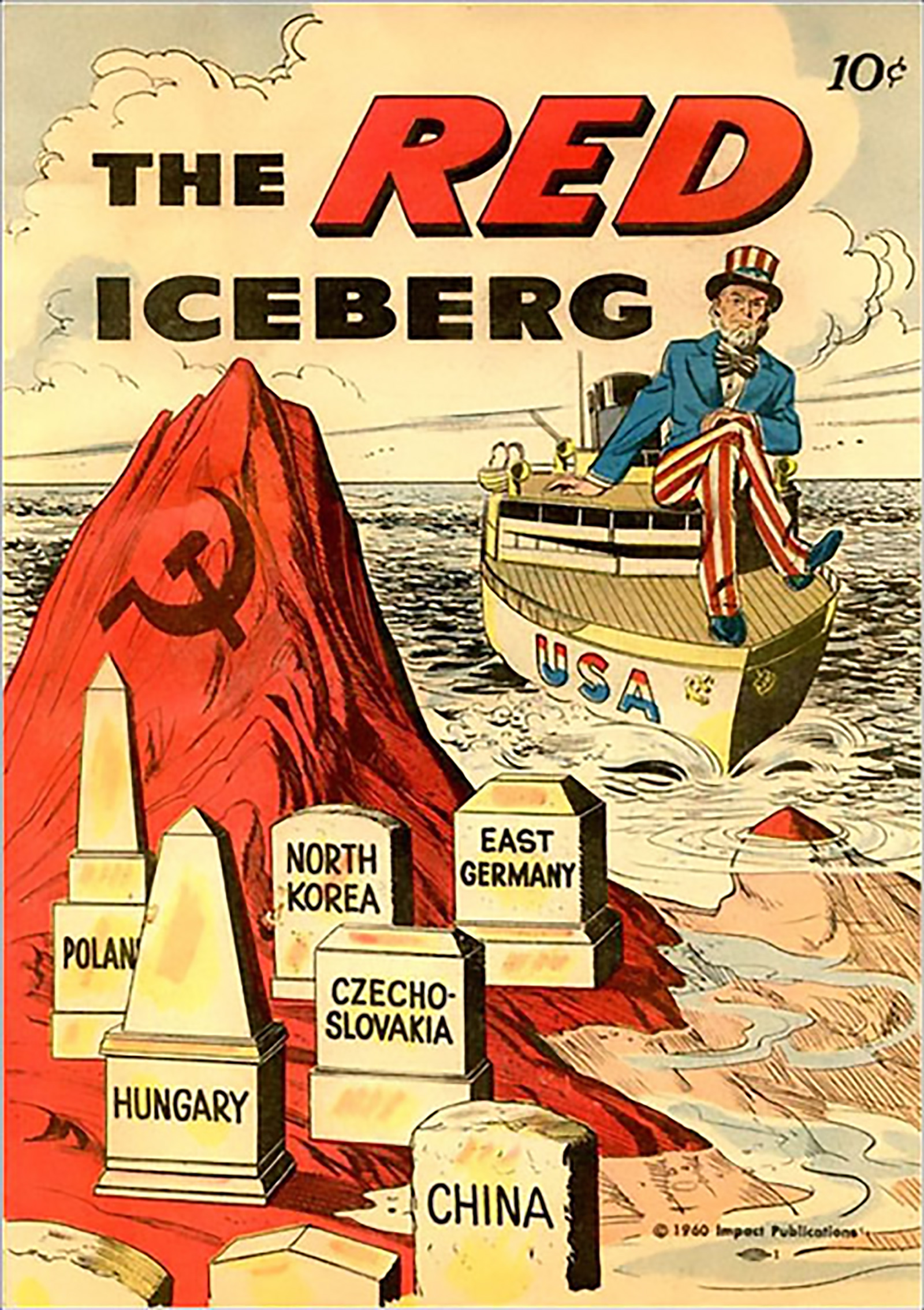
“The Red Iceberg” Bryn Mawr College
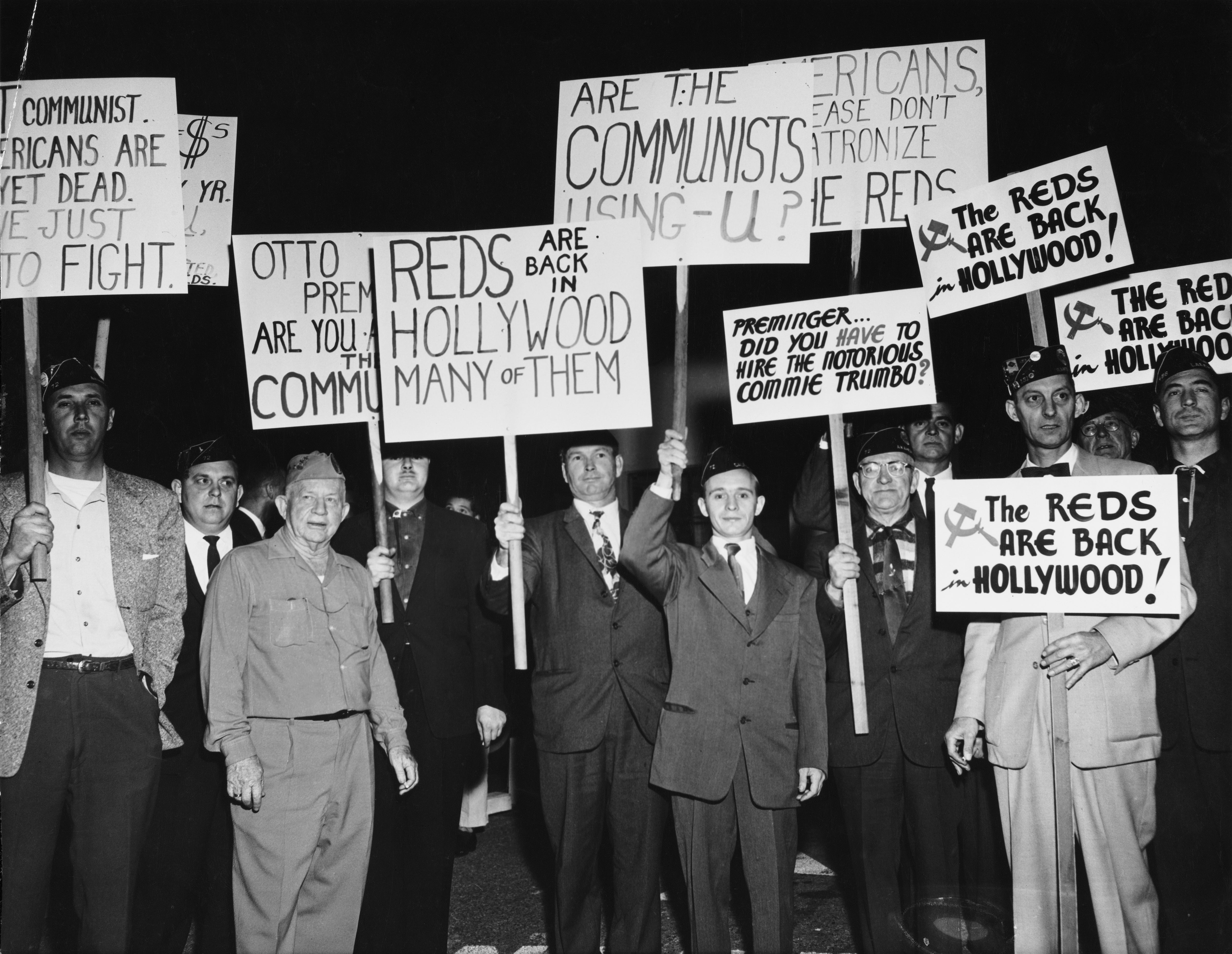
“A Group of Protesters Demonstrate Holding Placards against Communist...” 1960, Getty Images / American Stock Archive / Archive Photos
"As China grew and gained more attention and influence, the treatment of Chinese and Chinese Americans became increasingly tied to the state of the U.S.-China relationship. I continued to experienced racism based on ignorance and misplaced prejudices about Chinese culture. But, as mistrust toward China and the Chinese government grew, I also witnessed a growing mistrust toward Chinese Americans."
-Dr. Chi Wang, President of the U.S.-China Policy Foundation, Interview Conducted by Shannon Tiezzi, The Diplomat
Nixon Takes Office
President Nixon's election in 1969 marked 20 years of absolutely no diplomatic relations with China. He believed that opening connections with China would break international tensions, and put pressure on the Soviet Union. America was faced with a disastrous war at home, and nuclear arms threats with the Soviets.
"Nixon Answers: Why Did He Go To China?" Oral history collections of the University of Georgia, Youtube Richard Nixon Foundation
“Henry (Kissinger)feels that our whole policy and the current moves on China will help to shake the Soviets up, as will Brezhnev’s need to make a big peace move of some kind, which should play in our favor for a SALT agreement and a Summit conference.”
-Richard Nixon, April, 1971

"The front page of The Washington Post in May 1971, the day after more than 7,000 anti-Vietnam War protesters were arrested for shutting down traffic in Washington." Hannah Natanson, The Washington Post Archives
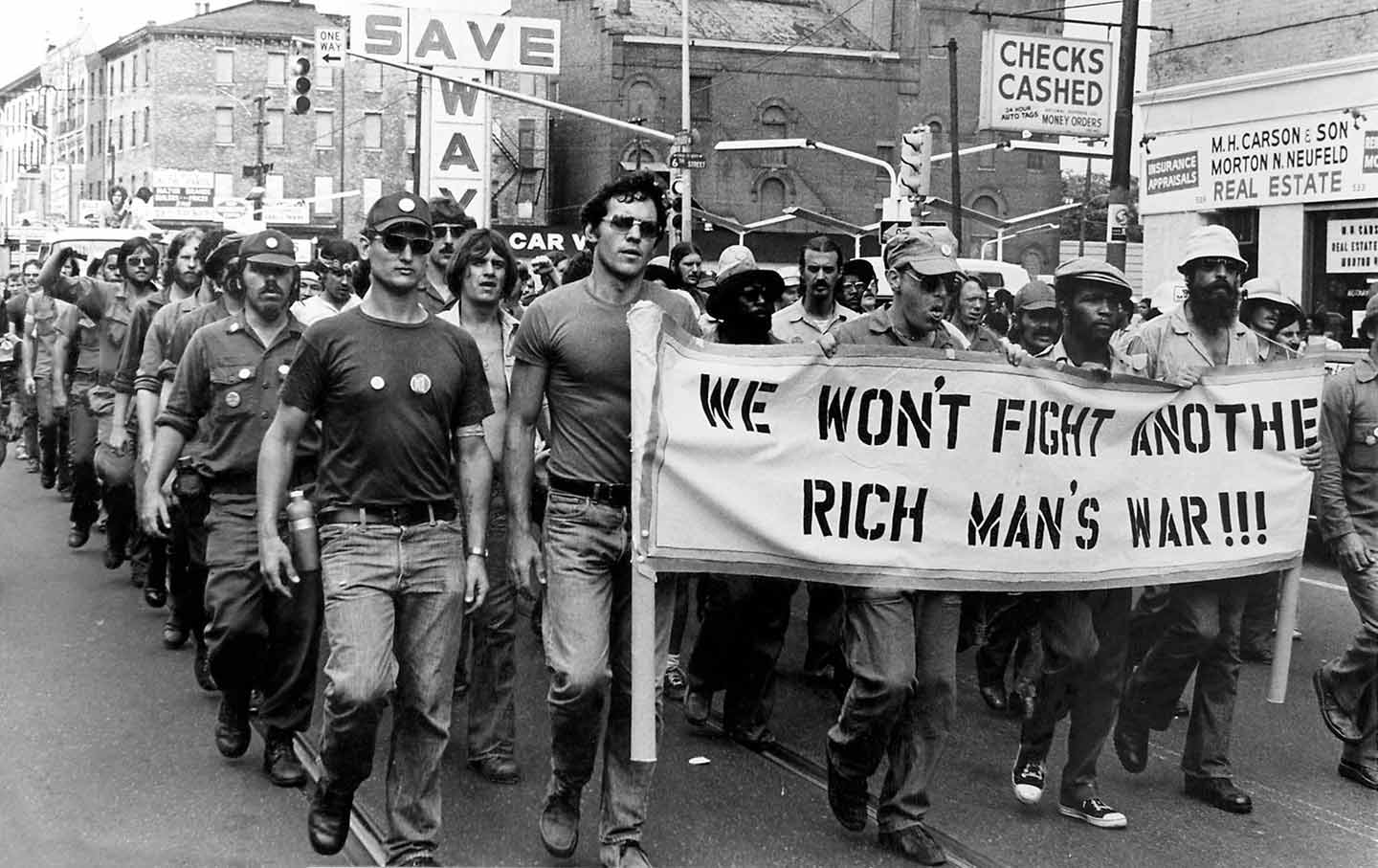
“WE WON’T FIGHT ANOTHER RICH MAN’S WAR —an anti–Vietnam War protest in the 1970s.", Public Domain, Zinn Education Project
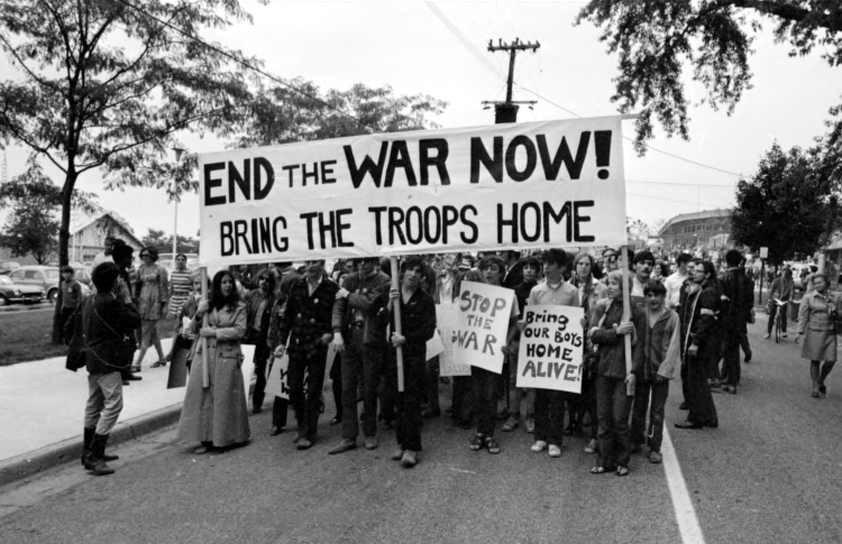
"End the War Now!" The Detroit News Collection, Walter P. Reuther Library, Archives of Labor and Urban Affairs, Wayne State University.

"Protesters at the Jeannette Rankin Peace Parade on January 15, 1968", Associated Press Photos
“At home, you had riots, assassinations and people being disillusioned with executive power. He thought if he opened China, the huge country, the drama and the importance of dealing with the giant would put in perspective the rather messy exit from Vietnam.”
-Ambassador Winston Lord
This alliance would help America gain a powerful ally through global issues.
Soviet Paranoia
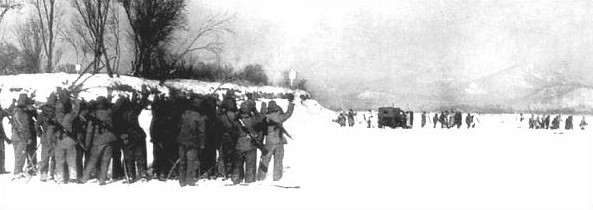
"Soviet and Chinese troops clash at the Ussuri River border, underlining the split in Sino-Soviet relations." Richard Nixon Foundation
March, 1969, the Soviet Union and China clashed at the Ussuri River, increasing mistrust between their isolated alliance. Mao became increasingly weary of potential Soviet expansionism, and mistrust of ideaologies between the two had been brewing.
This tension and paranoia further increased after the Soviet Invasion of Czechslovakia in 1968. The Chinese looked towards the US as a counterweight to isolate and neutralize Soviet advancements.
“Peking has chosen normalization because of our strength. It is precisely your assertion of a responsible American world role and taking strong measures when necessary that has convinced the PRC that the U.S. is a useful counterweight to the Soviet menace.”
-Henry Kissinger in his 1971 Memorandum
This political alignment between the East and West kickstarted a diplomacy that would open up China as a major power in international affairs.
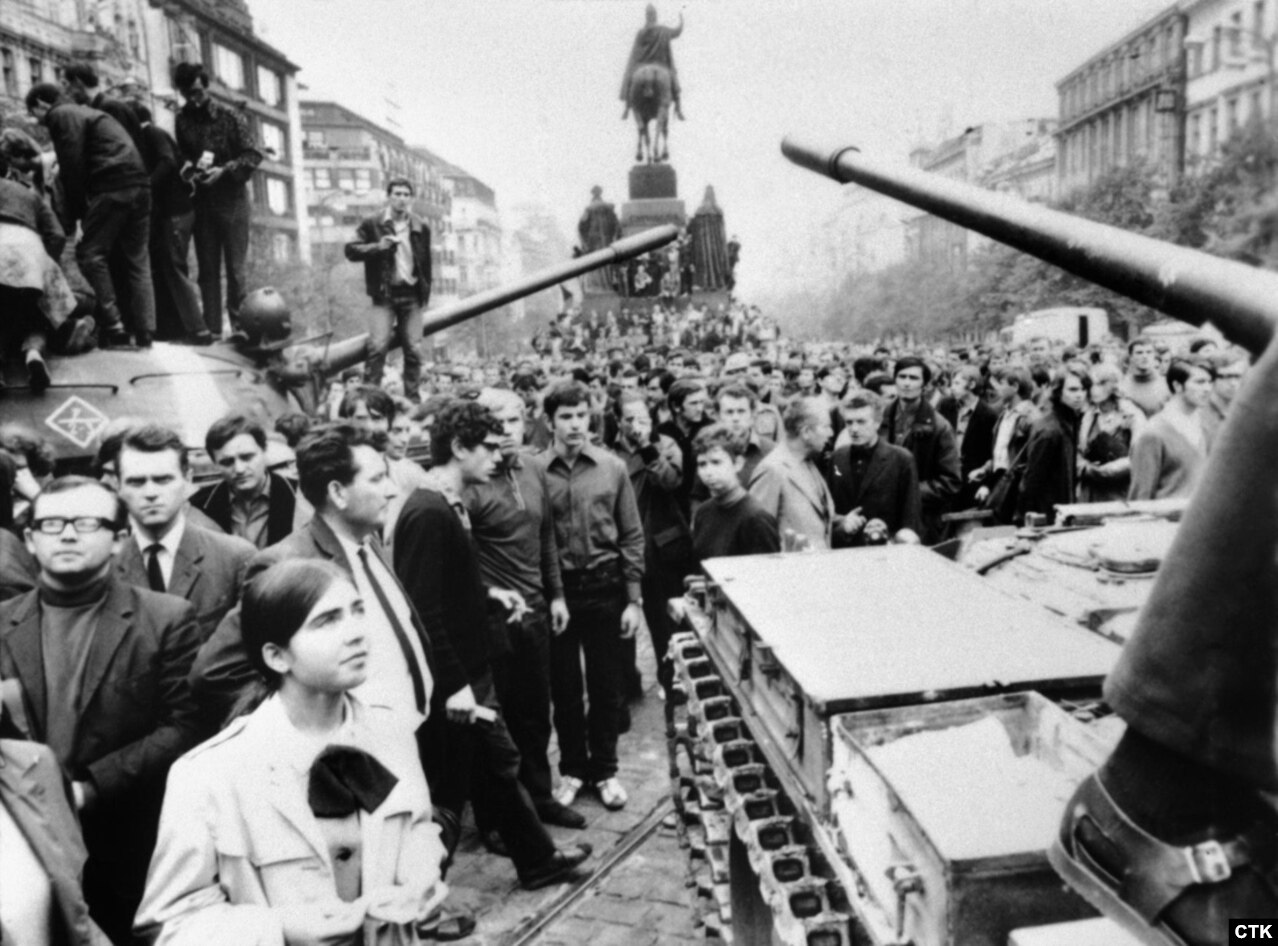
"Soviet tanks are surrounded by crowds of Czechs protesting against the invasion on Prague's Wenceslas Square on August 21, 1968." Czech Press Agency Archives
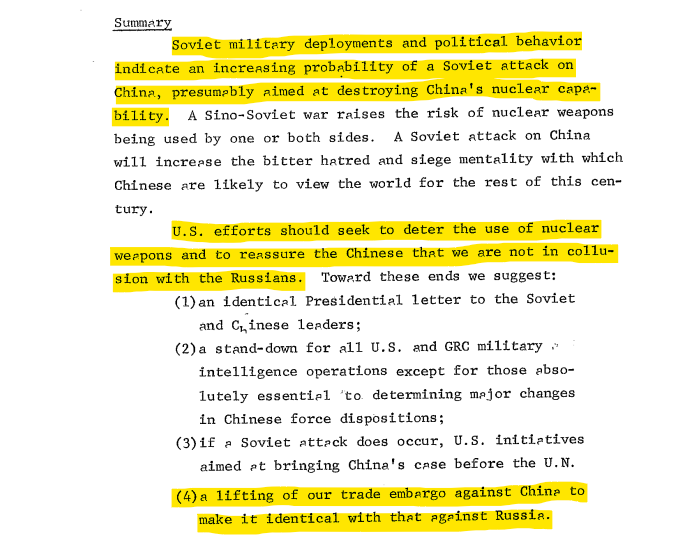
"Letter from Allen S. Whiting to Henry Kissinger, 16 August 1969, enclosing report, "Sino-Soviet Hostilities and Implications for U.S. Policy" National Archives, Nixon Presidential Materials Project, box 839, China
“They recognize that the West, and particularly the United States, now represents not an oppressor but a protector. And they recognize their need for protection. This does not mean that the old resentments and distrusts have vanished, or that new ones will not arise. It does, however, mean that there has been an important shift in the balance of danger, and this shift has important implications for the future."
-Richard Nixon in “Asia after Vietnam”, Pg 113
"Why It Was ESSENTIAL To Open Relations With China." Oral history collections of the University of Georgia, Richard Nixon Foundation
“We also say in the same situation, that’s what your President said when he was sitting here, that each side has its own means and acted out of its own necessity. That resulted in the two countries acting hand-in-hand.”
-Chairman Mao Zedong, 1973
